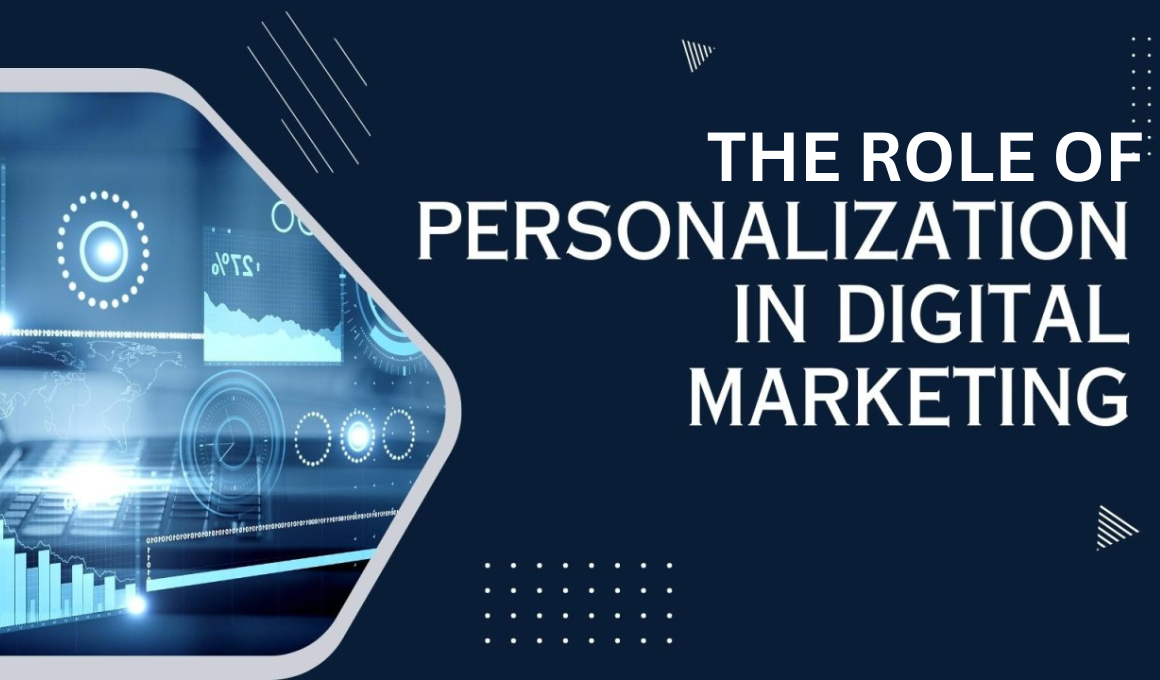
In the current dynamic digital environment, personalization has become a key component of successful marketing plans. As businesses strive to capture the attention of their target audience, understanding the role of personalization in Indian digital marketing becomes essential. This approach not only enhances customer engagement but also fosters loyalty, ultimately driving sales. Digital Mart Lab, located in Lucknow, stands out as a leader in implementing personalized strategies that resonate with customers across India. In this blog post, we will explore the significance of personalization, its features, pros and cons, and how Digital Mart Lab tailors its digital marketing services to meet the diverse needs of businesses.
Understanding Personalization in Digital Marketing
To begin with, personalization in digital marketing refers to the practice of tailoring content, offers, and experiences to individual users based on their preferences, behaviors, and past interactions. This strategy leverages data analytics and customer insights to create a more relevant and engaging experience for the audience. In the context of India, where cultural diversity and regional differences abound, personalization becomes even more crucial.
Features of Personalization
- Targeted Content: By analyzing user data, businesses can create content that speaks directly to the interests and preferences of their target audience. For instance, Digital Mart Lab crafts messages that resonate with potential clients in Lucknow and beyond. In doing so, they ensure that the content is not only relevant but also engaging.
- Behavioral Tracking: Furthermore, personalization relies heavily on tracking user behavior, including website visits, click-through rates, and social media interactions. This data helps in understanding what resonates with customers, allowing for more effective marketing strategies.
- Dynamic Pricing: Additionally, personalization can extend to pricing strategies, where businesses offer tailored prices or discounts based on user profiles. This strategy encourages conversions and enhances customer satisfaction.
- Customized Communication: Moreover, personalized emails, messages, and notifications can significantly improve engagement rates. When customers receive communications that address their specific needs, they are more likely to respond positively.
- Recommendations and Suggestions: E-commerce platforms often use algorithms to suggest products based on past purchases or browsing history.This increases sales in addition to improving the user experience.
Pros of Personalization
- Enhanced Customer Experience: Personalization leads to a more enjoyable shopping experience, as customers are presented with content and products that match their interests. Digital Mart Lab understands the importance of delivering relevant content to its clients in Lucknow. As a result, they create experiences that feel tailor-made.
- Increased Conversion Rates: By catering to individual preferences, businesses can significantly boost their conversion rates. Research shows that personalized marketing campaigns yield higher ROI compared to generic approaches. Therefore, investing in personalization is not just beneficial but necessary.
- Stronger Customer Loyalty: When customers feel understood and valued, they are more likely to remain loyal to a brand. Personalized experiences foster emotional connections, making customers less likely to switch to competitors. For this reason, businesses should prioritize building these connections.
- Better Customer Insights: Personalization requires data collection and analysis, providing businesses with deeper insights into customer behaviors and preferences. Future marketing plans may benefit greatly from this information. As a result, companies who put an emphasis on customization will have an edge over their rivals.
- Improved Marketing Efficiency: By targeting specific segments of the audience, businesses can allocate their marketing resources more effectively, leading to reduced wastage and improved results. This efficiency allows companies like Digital Mart Lab to maximize their impact in the digital space.
Cons of Personalization
- Privacy Issues: The possible breach of privacy is one of the major obstacles to personalization. Customers may feel uncomfortable when their data is collected and used without their consent. Therefore, businesses must tread carefully.
- Implementation Costs: Developing personalized marketing strategies can require significant investments in technology, data analysis, and training, which may not be feasible for all businesses. But these upfront expenses are frequently outweighed by the long-term advantages.
- Over-Personalization: There is a risk of overstepping boundaries, where customers feel overwhelmed or intruded upon by overly personalized messages. Finding the right balance is crucial. Thus, companies must ensure they maintain respect for their customers’ preferences.
- Data Management Challenges: Collecting and managing customer data presents challenges, especially concerning data security and compliance with regulations like GDPR. Companies need robust systems in place to safeguard customer information.
- Dependence on Technology: Personalization heavily relies on technology and data analytics, which may pose challenges for businesses that lack technical expertise. Therefore, investing in the right tools and talent is essential.
How Digital Mart Lab Implements Personalization
Digital Mart Lab, located in Lucknow, has a proven track record in leveraging personalization to enhance its digital marketing services. Here are some ways the company excels in this domain:
Tailored Marketing Campaigns
To illustrate, at Digital Mart Lab, most clients receive personalized marketing campaigns designed to address their specific needs and preferences. By understanding the local market dynamics in Lucknow and across India, the team creates campaigns that resonate with the target audience. This focused strategy encourages participation in addition to grabbing attention.
Data-Driven Insights
With years of experience in digital marketing, Digital Mart Lab uses advanced data analytics to gain insights into customer behavior. This data-driven approach enables the company to craft messages that align with customer interests, ultimately driving engagement. Therefore, data becomes the backbone of their personalized strategies.
Customized Social Media Strategies
Furthermore, social media marketing is a vital component of any digital marketing strategy. Digital Mart Lab focuses on creating personalized content for social media platforms, ensuring that clients’ brands connect with their audience on a deeper level. The team understands that most customers prefer personalized content over generic posts, making it a priority in their marketing efforts.
Email Marketing Personalization
Moreover, email marketing is another area where Digital Mart Lab excels. By segmenting email lists based on customer behaviors and preferences, the company ensures that clients send targeted messages that drive higher open and conversion rates. Personalized email campaigns have proven to be a powerful tool for many businesses in Lucknow and beyond.
User Experience Enhancement
In addition, Digital Mart Lab believes in creating a seamless user experience on websites. By incorporating personalized elements, such as dynamic content and tailored recommendations, the company ensures that visitors find what they are looking for easily, leading to increased engagement and conversions. This focus on user experience is critical for retaining customers.
The Importance of Personalization in the Indian Market
India is a multicultural country with a wide range of languages, customs, and cultures. This diversity necessitates a personalized approach in digital marketing. Here’s why personalization is crucial in the Indian market:
- Diverse Audience : To start, India boasts a population of over 1.4 billion people, each with unique preferences and behaviors. Personalization allows businesses to cater to this diverse audience effectively. Consequently, businesses that adopt personalized marketing will likely see better engagement rates.
- Rising Internet Penetration : Furthermore, with the rise of internet access and smartphone usage, more consumers are engaging with digital platforms. Personalization helps businesses capture and retain the attention of these online users. In doing so, companies can build lasting relationships with their audience.
- Increasing Competition : Additionally, as the digital marketing landscape becomes more competitive, businesses need to differentiate themselves. Personalization provides a competitive edge by enhancing customer engagement and satisfaction. Therefore, it’s vital for companies to stay ahead of the curve.
- E-commerce Growth : The rapid growth of e-commerce in India has led to a surge in customer expectations. Consumers now expect personalized experiences, making it imperative for businesses to adapt their strategies accordingly. This adaptability can make a significant difference in customer satisfaction and retention.
- Cultural Sensitivity : Moreover, understanding cultural nuances is essential in Indian marketing. Personalization allows brands to connect with customers on a cultural level, fostering trust and loyalty. As a result, businesses that demonstrate cultural awareness will likely enjoy greater customer loyalty.
The Future of Personalization in Indian Digital Marketing

As technology continues to evolve, personalization in digital marketing is expected to become even more sophisticated. Future trends to look out for include the following:
AI and Machine Learning
To begin with, artificial intelligence (AI) and machine learning will play a significant role in enhancing personalization. These technologies can analyze vast amounts of data to deliver highly targeted marketing campaigns in real time. This capability will undoubtedly revolutionize how businesses approach personalization.
Voice Search Optimization
With the increasing use of voice search, businesses will need to adapt their personalization strategies to cater to this trend. Optimizing content for voice search will be crucial for reaching customers effectively. As a result, companies should begin investing in voice search optimization sooner rather than later.
Omnichannel Personalization
Customers interact with brands across multiple channels, including websites, social media, and email. Implementing omnichannel personalization will provide a seamless experience, allowing customers to engage with brands on their terms. This holistic approach is essential for keeping customers satisfied.
Privacy-First Personalization
As privacy concerns grow, businesses will need to adopt privacy-first personalization strategies. This involves being transparent about data collection and usage while still delivering personalized experiences. Balancing personalization with privacy will be critical for building customer trust.
Enhanced Customer Journeys
Finally, the focus will shift towards creating personalized customer journeys that consider the entire buying process. By understanding each stage of the customer journey, businesses can tailor their marketing efforts accordingly. This approach will help ensure that customers receive the right message at the right time.
Case Studies of Successful Personalization
To further illustrate the effectiveness of personalization, let’s take a look at a few successful case studies from various industries:
- E-commerce Success Story : An e-commerce platform in India implemented a personalized recommendation engine based on user behavior. By analyzing past purchases and browsing history, they were able to suggest products tailored to individual customers. As a result, the platform saw a 30% increase in sales within six months.
- Travel Industry Innovation : A travel agency utilized personalized email marketing campaigns to target specific customer segments. By offering tailored travel packages based on past trips and preferences, the agency experienced a significant boost in engagement rates. Consequently, they increased bookings by 25% in one quarter.
- Hospitality Sector Example : A luxury hotel chain in India adopted personalized experiences for guests by offering customized welcome packages based on their preferences. This attention to detail led to a higher guest satisfaction rate and increased repeat bookings. As a result, the hotel chain gained a loyal customer base.
Conclusion
In conclusion, personalization plays a vital role in the success of digital marketing strategies, particularly in the Indian market. Businesses may develop customized experiences that encourage engagement and loyalty by knowing the interests and habits of their customers. Digital Mart Lab, located in Lucknow, exemplifies the benefits of personalization in its digital marketing services, delivering tailored solutions that resonate with clients and their audiences.
As the digital landscape continues to evolve, businesses must embrace personalization as a key strategy for success. By investing in personalized marketing, companies can stay ahead of the competition, build lasting relationships with customers, and ultimately drive sales. In a world where customer expectations are constantly rising, personalization is not just an option; it is a necessity. Whether you are a small business owner or part of a larger organization, consider partnering with Digital Mart Lab to enhance your digital marketing efforts through personalized strategies. Visit www.digitalmartlab.com to learn more about their services and how they can help your business thrive in the digital age.



